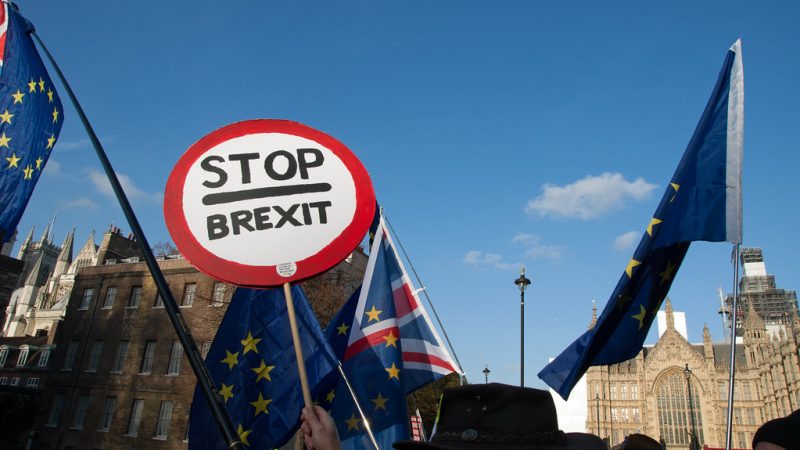Many of the agreements are ‘continuity’ or ‘rollover’ agreements, which replicate the deals we already had previously as members of the EU.

Tony Burke is the President of the Confederation of Shipbuilding and Engineering Union and Co Chair Of The Campaign For Trade Union Freedom.
Earlier this month, some media commentators proclaimed that Brexit was ‘dead’, after Michael Gove and a handful of leading Brexiteers met privately in Ditchley Park with Labour politicians (David Lam, John Healey and Lord Mandelson) in an effort to scope out how to try to make Brexit work. Tory Brextremists (and Nigel Farage) predictably went crazy and the media blamed ‘Remainers’ for scuppering Brexit.
The meeting was a major contrast to the Brexiteers’ promises of a swashbuckling Britain sailing the seven seas (with a new royal yacht) winning trade agreements. Countries would be queuing up to sign trade deals with Global Britain – or so we were promised.
This short round up of trade deals and other agreements (it is a snapshot only with no detailed discussion of content of employment rights) shows how the promise has proved to be false.
Instead of signing deals, the UK has been trying to cobble together trade deals with almost anyone who will talk to us and then talking up their significance and benefits to disbelieving employers, industry, exporters and unions.
According to the government, the UK now has “over 70 trade agreements in place”.
But many of these are ‘continuity’ or ‘rollover’ agreements, which replicate the deals we already had previously as members of the EU.
In fairness, they are not always identical. The UK’s continuity agreement with Japan went beyond rollover terms with the country in areas such as financial services. However, it is less advantageous on export quotas for agricultural products.
So, for the purposes of this short round up continuity agreements are not considered new free trade agreements, despite the Government trying to add them to the total.
At present the total looks like this:
The UK-Australia Free Trade Agreement was signed by the UK and Australian governments in December 2021 and the UK-New Zealand Free Trade Agreement was signed by the UK and New Zealand governments in February 2022.
These deals were rushed through by Liz Truss to try to get some momentum going – but the consensus is that the deals benefit Australia and New Zealand more than the UK. As one Aussie union leader told me: “We took you to the cleaners!”
UK famers are unhappy about the deals and believe the UK gave too much away. And ex-minister George Eustice, a leading Brexiteer, described them as “not actually a very good deal for the UK.”
Trade negotiations with the USA (an early priority for the UK’s post-EU trade policy) had five rounds of talks in 2020 but they came to nothing. Talks are officially ‘suspended’ but the reality is that Biden’s administration pulled the plug over a number of issues including the NI Protocol and the fact that the USA has its eyes elsewhere, notably a trade deal with the EU and its problems with China. The UK is as Barak Obama warned “at the back of the queue”, which isn’t moving too fast these days.
The UK’s International Trade Minister (tipped to be a future Tory leader), Kemi Badenoch, has had to sit on the sidelines while the USA takes little notice after her visit to America to intervene on Biden’s push to develop electric auto manufacturing in the USA to the detriment of the UK auto sector.
The UK has signed Memorandums of Understandings with some individual US states (for example, Indiana) but these do not amount to formal trade agreements, despite being talked up by the Government.
The UK became the first country to apply to join the CPTPP – a pre-existing trade agreement between 11 countries: Australia, Brunei Darussalam, Canada, Chile, Japan, Malaysia, Mexico, New Zealand, Peru, Singapore and Vietnam. China has also applied to join the CPTPP (bringing with it its own problems for the UK and its relations with the USA) and whilst talks are ongoing, progress has been slow, despite the Brexit supporting media predicting a ‘trade bonanza’ last year.
In addition, negotiations are in progress between the UK and India, with the latter demanding access to more visas and jobs in the UK. A trade deal was hoped for in October last year with the odious Indian leader Modi, who has recently been attacking the BBC in retribution for what he deems ‘negative reporting’ over his role in the 2002 Gujarat riots.
Talks are also taking place with Canada, Mexico and Isreal to replace the existing roll over agreements.
In addition, negotiations are taking place with The Gulf Co-operation Council (representing Bahrain, Kuwait, Oman, Qatar, Saudi Arabia and the United Arab Emirates). The Government has also held public consultations on potential future negotiations with Switzerland and South Korea where we already have rollover agreements in place with them. However, the UK Government hopes to negotiate “enhanced” trade agreements with both countries.
Other agreements include the Singapore Digital Economy Agreement; Norway, Iceland and Liechtenstein Free Trade Agreement (EFTA countries minus Switzerland) and the UK-Ukraine Digital Trade Agreement.
So much for countries queuing to do trade deals! Marks in the Government’s homework book: 2 out of 10. You Must do better!
Left Foot Forward doesn't have the backing of big business or billionaires. We rely on the kind and generous support of ordinary people like you.
You can support hard-hitting journalism that holds the right to account, provides a forum for debate among progressives, and covers the stories the rest of the media ignore. Donate today.



